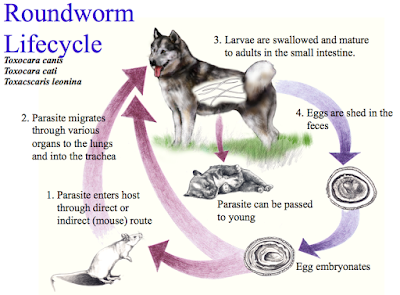Letting Your Dog Walk You
A poorly trained dog can pull you over while you’re out for a stroll. According to the CDC, tens of thousands of people end up in the ER every year because of pet-related falls. Many of these falls occur during walks -- either when a person trips over a dog or is pulled or pushed by one. Experts say obedience training is the best way to make sure your pooch doesn’t take you down during the morning walk.
After a walk in the woods, you check yourself for ticks, right? Don't forget about your dog. Tick bites put your dog at risk for Lyme disease, Rocky Mountain spotted fever, and a handful of other diseases. They can also cause serious illnesses in cats. If your pet has infected ticks, this puts the rest of the family at risk. If you find a tick, remove it carefully with tweezers, being careful to get all of the head and not to crush it. Ask the vet about tick control.
Overlooking Ticks
After a walk in the woods, you check yourself for ticks, right? Don't forget about your dog. Tick bites put your dog at risk for Lyme disease, Rocky Mountain spotted fever, and a handful of other diseases. They can also cause serious illnesses in cats. If your pet has infected ticks, this puts the rest of the family at risk. If you find a tick, remove it carefully with tweezers, being careful to get all of the head and not to crush it. Ask the vet about tick control.
Ignoring Ringworm and Roundworms
If your pet has a round bald patch, ringworm could be to blame. Leave this fungus untreated, and you're putting your family at risk. People can get ringworm from dogs or cats by touching their skin or fur. Ringworm usually causes a reddish, ring-shaped rash on the skin or bald spots if it infects the scalp. If your pet has hair loss, take him to your vet to see if it could be ringworm.
Roundworms are common parasites in both dogs and cats. They cause diarrhea and vomiting and may lead to serious illness. But many people don't realize these worms are a threat to humans, too. An infected pet can contaminate soil or sand with tiny eggs. Kids may ingest the eggs by putting dirty fingers in their mouths. When the worms hatch inside people, they can cause blindness and other tissue damage. Ask your vet about regular deworming.
Skipping Flea Medicine
Skip your pets' flea medicine, and they aren't the only ones who will pay the price. Fleas will quickly set up shop on untreated pets, particularly in summer and fall, and fill your house with their eggs and young. Some people wind up covered in itchy sores. Fleas can also transmit serious diseases to people including bubonic plague. Ask your vet about long term flea medication and put a routine reminder on your calendar.
Not Spaying or Neutering Your Pet
Millions of cats and dogs live on the street or end up euthanized because of unwanted litters. Still, many people are reluctant to spay or neuter their pets. The fact is, spaying and neutering is a healthy choice for your pet. It reduces the risk of breast cancer in females and testicular cancer in males. Neutered males are also less likely to run away from home, mark their territory, or exhibit aggressive behaviors.
Keeping the Food Bowl Full
With the best intentions, some people keep their pets' food bowls full at all times. This is one of the most common mistakes pet owners make. The problem is that cats and dogs often eat more than they need. If food is constantly available, they will take in too many calories and put on too much weight.
Forcing Cats to Be Vegetarian
Vegetarian people sometimes want their pets to share their lifestyle. The trouble is cats are "obligate carnivores." This means they must eat meat to survive. They depend on nutrients, such as the amino acid taurine, that are only found in animal tissue. Dogs may be able to handle a well-balanced vegetarian diet, but check with your vet first.
Providing Too Little Exercise
Just like people, pets need exercise to stay healthy. Couch potato pets are prone to obesity, which raises their risk of respiratory problems and joint problems. The right amount of exercise for a dog depends on the breed and size, but vets recommend at least a half-hour each day. Taking brisk walks with your dog can help you get in shape, too.


Great Article Pat, as a pet lover myself I totally understand where your coming from.
ReplyDeleteI am particularly interested in the “Skipping Flea Medicine section of your article.
Why?
We developed a free tool, for both patients, doctors, vets and veterinarians to keep track of their symptoms and medications. Our main goal, is to both support and spread awareness of both common and uncommon diseases. Please let me know, if you request more information about our movement.
It would be great if you would consider mentioning our app on your page. Either way, I look forward to reading more of your important content on your blog
Kindest regards,
Andrew Penfold
penfold@smartpatient.eu
Thank you for your article!
ReplyDelete